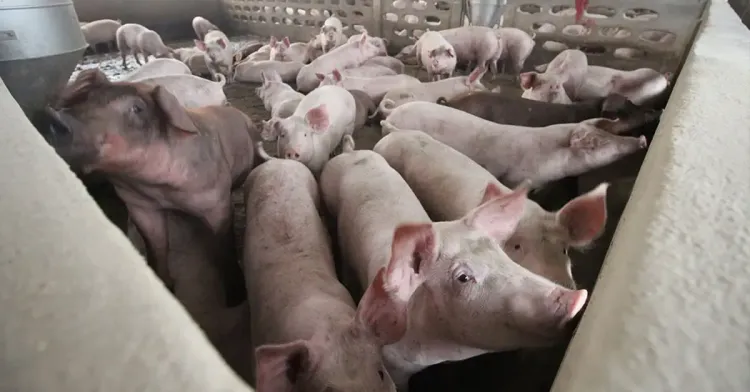Laos Issues Warning Over African Swine Fever Spread

Synopsis
Key Takeaways
- Xaysomboun province declared a red zone.
- Confirmed cases of African swine fever in Vanghai village.
- Ban on processing and sale of infected pork.
- Heightened surveillance in affected areas.
- Farmers urged to enhance biosecurity measures.
Vientiane, Feb 26 (NationPress) Authorities in Laos have classified Xaysomboun province in central Laos as a red zone after confirming cases of African swine fever in the area.
Local officials performed inspections and verified the existence of African swine fever in Vanghai village within the Thathom district of Xaysomboun province on February 19, as reported by Xinhua news agency and Lao National Radio.
To halt further transmission, authorities have prohibited the processing and sale of contaminated pork. This disease poses a grave threat to pig farming and the economic stability of the Lao population. Officials are urging collective actions to manage and eradicate the outbreak.
In a bid to limit the spread, heightened surveillance is being implemented in various villages throughout Xaysomboun and Bolikhamxay provinces. Furthermore, inspections and sample collections for analysis will be conducted to mitigate losses.
Farmers are encouraged to enhance biosecurity protocols and adhere to movement restrictions to expedite the control of the outbreak.
This animal disease affects both pigs and wild boars and has an almost 100 percent mortality rate. It requires elevated temperatures to eliminate the virus, which can persist for up to three years in frozen meat and up to one year in dried meat.
African Swine Fever (ASF) is a highly contagious and lethal viral disease impacting domestic and feral swine of all ages.
It is important to note that it cannot be transmitted to humans, and safely prepared pork products remain edible. While it doesn’t pose a direct risk to human health, its lethal effects on swine could lead to pork shortages, trade disruptions, and economic ramifications. Currently, there is no treatment or vaccine available, making prevention the most effective strategy.
ASF is prevalent in sub-Saharan Africa, where the disease was first identified.
In Europe, ASF was confined to the Italian island of Sardinia from 1995 until 2007. However, in 2007, outbreaks emerged in Georgia, which spread to neighboring countries, affecting domestic pigs and wild boars.
In 2014, the first cases were reported in the European Union, affecting wild boars from the Baltic states and Poland. Since then, the disease has extended to additional EU nations and neighboring non-EU countries, with outbreaks occurring in Asia, Oceania, and parts of the Americas in recent years.









